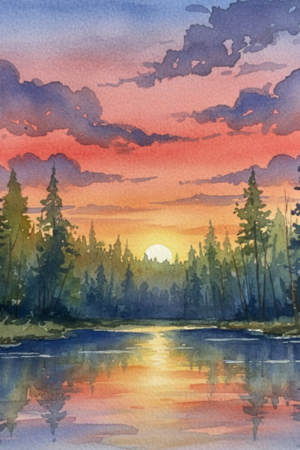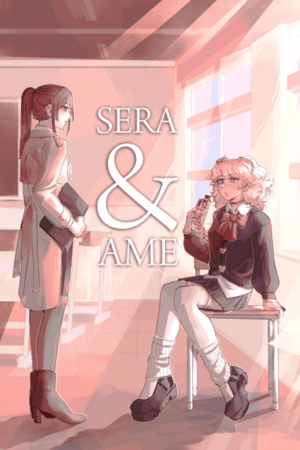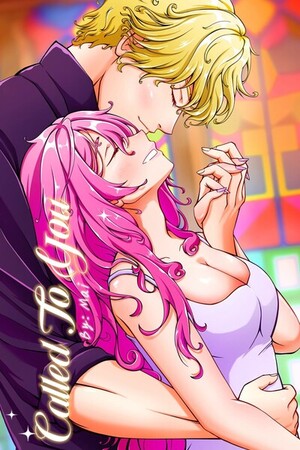Chapter 1:
Where life meets death
Where life meets death
A half-moon floated behind scattered clouds. From high above the town, the houses glowed like hundreds of quiet hearts beating in the dark. Street lamps burned in straight rows. Small alleys bent like veins between them. If you listened closely, you could almost hear it breathing — the town itself alive under the night.
The camera drifted lower, gliding over roofs, down toward a single hospital. Windows glimmered pale. Curtains moved faintly in the breeze. Inside, a room waited.
Monitors beeped slowly. A smell of antiseptic hung in the air. On the bed lay an old man. His hair was thin and white, his face lined but gentle. A tube carried oxygen to his nose. Each breath rose like a small wave and fell like a tired tide.
Beside him stood his son, shoulders shaking. His wife had one hand on his back, eyes wet but steady. Between them, at the foot of the bed, a boy of eleven looked from one adult to another. He didn’t understand why everyone was crying. He only felt the weight of it, like heavy rain pressing on his small shoulders.
“Hotaru,” the grandfather whispered.
The boy stepped closer. His feet barely made a sound on the polished floor.
“Come here. Sit by me.”
Hotaru climbed onto the bed. The old man’s hand was thin, warm, trembling. He rested it on the boy’s cheek and smiled as though he were looking at a sunrise no one else could see.
“Listen to me,” he said. “One day you’ll grow. The world will tell you to be serious. To be proper. To kill the child inside you. Don’t let them. Keep a corner of your heart wild and curious. Keep drawing, playing, laughing. Even when you’re grown, even when you’re tired. Promise me.”
“I… promise,” Hotaru said softly. He didn’t understand why the words felt heavy, only that his grandfather’s eyes shone as if the moon itself had fallen into them.
The old man looked past the boy to his family. His chest rose and fell, slower now. He saw his son, his daughter-in-law, the boy. He felt their warmth around him like a blanket. For a moment he was not afraid. He was simply full.
He smiled. It was small but true. And with that smile still on his lips, he exhaled once more and did not inhale again.
The monitors went flat. The son bent forward, his cry breaking loose. The wife held him tighter, her own tears falling silently. Hotaru sat still, his grandfather’s hand in his, staring at that faint smile and trying to hold the words inside his head.
Wind moved through tall grasses on a riverbank. Frogs croaked like hidden drums. The moon lay on the water’s surface, a broken coin trembling with each ripple. Fireflies had not yet arrived. Only darkness and small sounds.
The camera lingered there for a heartbeat — a quiet world continuing even as someone left it.
The summer sun baked the school courtyard. Cicadas screamed from the trees. In the flowerbeds butterflies landed and rose again, wings like tiny banners. Inside the classroom the air was heavy. Chalk dust floated like white mist.
Seventeen-year-old Hotaru sat at his desk, back straight, face blank. Two boys whispered behind him. The teacher snapped, grabbed a piece of chalk, and flicked it at both of them. Perfect hits. The class burst into laughter.
“Outside. Both of you!” she barked.
They shuffled out, still chuckling. The room settled back into its usual drone. The camera moved in close on Hotaru’s face. Around him the other students blurred, a sea of color and sound. He did not laugh. He did not even blink. His mind was still circling a sentence from six years ago: Don’t kill the child inside you.
He didn’t know what it meant.
He walked home every day on the same road. The camera faced him, moving backwards as he walked toward it. Seasons shifted behind him. Summer fields bright and green. Autumn winds stripping leaves. Winter frost whitening the ground. Spring rain swelling the crops.
He grew taller. His school bag changed. His expression did not. Year after year he walked, the same road carrying a different boy each time, until finally a young man of twenty-five walked there, no bag, only a briefcase.
Glass towers cut the sky. Streets buzzed with cars and voices. Neon signs blinked like restless eyes. Hotaru sat at a desk inside one of those towers. Day after day he typed reports, filled forms, nodded at meetings. At night he returned to a small apartment, opened his balcony door, and stared at the city lights melting into rain. It was breathtaking — but it no longer reached him.
He stopped drawing. Stopped calling his parents. Stopped answering when they called. “I’m busy,” he told himself. “I’ll call later.” Later never came.
The pressure rose like water in a sinking boat. Each overtime night stole another piece of him. His chest grew heavy. His hands felt like stone. He began to ask himself quietly: What is the point?
One rainy night the company fired him. “You’re not keeping up,” they said. He left the building with an empty box of his things. The sky was low, clouds black and moving fast. His throat hurt but no tears came. He walked until his legs shook and then he sat on a park bench.
A lamp stood before him, its light flickering. Moths circled it like tired stars. The sound of the city dimmed until only the buzz of the lamp and the hiss of rain remained.
His phone vibrated. A message. He opened it.
We tried to reach you. Your mother and father… the train accident… last week. We thought we should tell you directly. We are sorry.
He stared at the words. They blurred but did not change. The rain soaked his hair, his clothes, his skin. His heart ached in a way he had no name for. He felt the weight of every unreturned call pressing down on his ribs.
He lowered the phone. The flicker of the lamp cast his face in shadow and light, shadow and light.
A soft scraping sound reached him. He looked up. A young woman in a wheelchair sat under the same lamp, a sketchbook balanced on her knees. Her legs were thin, unmoving. Her hands moved with quiet speed, pencil whispering across paper.
She looked at the lamp, at the moths, at the rain. She smiled and kept drawing.
Hotaru watched her without meaning to. Something in the small curve of her smile, the way her fingers danced, felt like a crack of sunlight in a locked room.
She noticed him watching and tilted her head. “They’re beautiful, aren’t they?” she said, nodding toward the moths. Her voice was light but not pitying. “Everyone thinks they’re ugly. But look — the wings. Like old paper lanterns.”
Hotaru said nothing. His throat was too tight.
She reached into her bag, tore a page from her sketchbook, and held it out. “Here. You looked like you needed this more than me.”
He took it. On the page the lamp glowed, the rain streaked, the moths became tiny sparks of gold.
Something stirred inside him — a memory of a hospital room, an old man’s trembling hand, a promise he did not understand.
“I… used to draw,” he murmured.
“Then draw again,” she said simply.
They sat in the rain under the flickering lamp until the city noise slowly returned. For the first time in years Hotaru felt the smallest warmth rise in his chest, not from the lamp but from the space her words had opened.
Days passed. Then weeks. Hotaru met her again and again — at the park, at small cafés, at art classes she convinced him to join. Her name was Saki. She could not walk, but she moved through the world with a kind of stubborn grace. She drew even when her hands hurt. She laughed even when buses splashed water onto her sketchbook. She reminded him of the child he had buried.
He began to draw again. Not well at first. But lines turned to shapes, shapes to small scenes. He sent sketches to relatives he hadn’t spoken to in years. He called his parents’ old friends to tell them stories. The ache in his chest did not vanish, but it became something he could carry.
Years folded over each other. They married quietly. She continued to draw. He continued too, designing books, illustrating children’s stories. Their apartment filled with color.
Time, as always, moved. Hair greyed. Hands trembled. Hotaru lay in a hospital bed, sunlight filtering through the curtains. Beside him sat a small girl, his granddaughter, bright-eyed and curious. His wife held his hand; her smile was soft and proud.
He beckoned the girl closer. She climbed onto the bed, just as he had long ago.
“Listen,” he whispered. “One day you’ll grow. The world will tell you to be serious. To be proper. To kill the child inside you. Don’t let them. Keep a corner of your heart wild and curious. Keep drawing, playing, laughing. Even when you’re grown, even when you’re tired. Promise me.”
“I promise,” she said.
He looked at his family. He felt the same warmth his grandfather had felt — a life held by other lives. He smiled, small but true. And with that smile still on his lips, he exhaled once more and did not inhale again.
The camera rose from the hospital, out through the window, over the city, over the fields, back to the riverbank. The grasses bent in the wind. Frogs croaked like hidden drums. The moon lay on the water’s surface, trembling with each ripple.
But now fireflies floated above the grass, their green lights blinking like a thousand tiny promises. They drifted over the river, their reflections joining the moon. Life and death shared the same dark water.
“Life is a spark in a vast night. Death is not its enemy but its edge, the shadow that makes the spark visible. Without endings we would never notice beginnings. Without loss we would never hold what we love.
You who are tired, you who are breaking — do not be fooled. The darkness around you is proof of your light. The ache inside you is proof you are still alive. Death waits for all of us; it does not need your help to arrive early. Live, even if only to keep one small firefly glowing in the dark. Live, and let your life be the thing that defeats despair. Live, and when death finally comes, greet it with a smile, not a wound.”
The river shimmered. The fireflies rose higher, tiny stars drifting upward, until the screen filled with their light.




Please sign in to leave a comment.